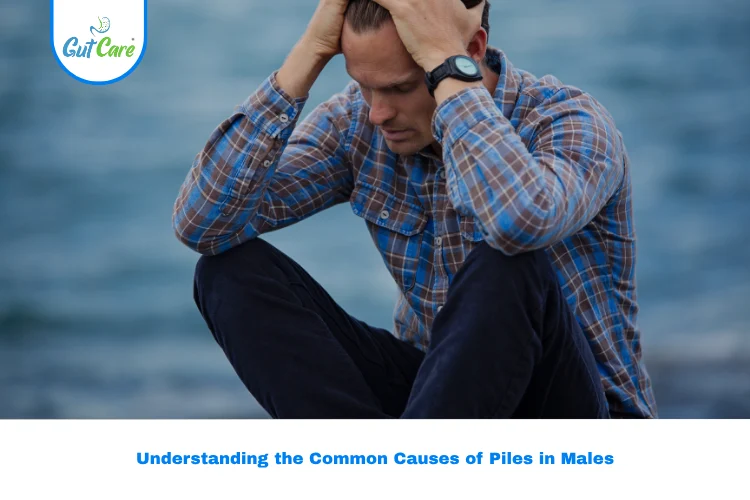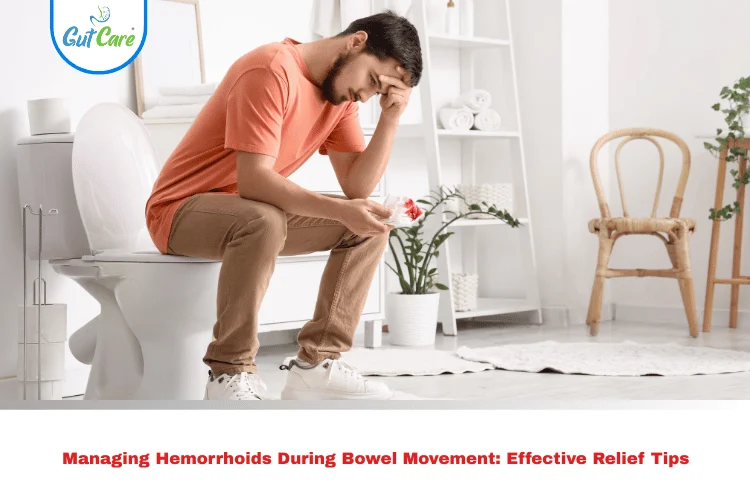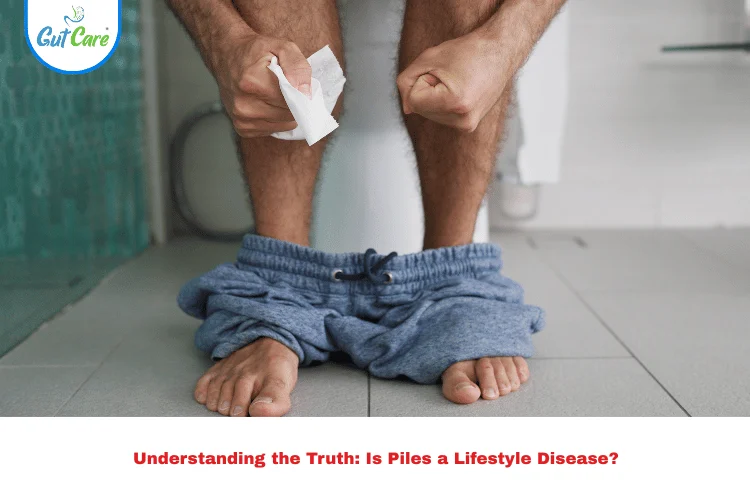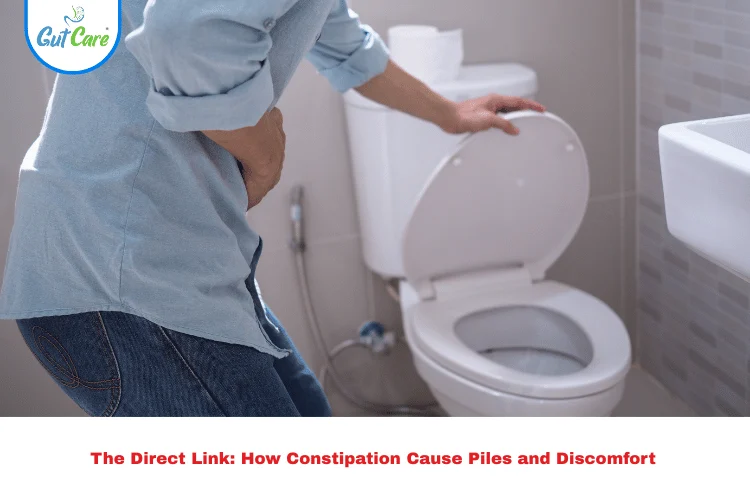Piles, also known as hemorrhoids, are swollen veins in the lower rectal area that cause discomfort and irritation. This condition is quite common among men, particularly those who lead sedentary lives or work long hours sitting. Knowing the Causes of Piles in Male helps in early prevention and effective care.
At Gutcare Clinics, located in Bangalore, Dr. Yuvrajsingh Gehlot, an experienced colorectal surgeon, provides accurate diagnosis and modern treatment for piles, ensuring each patient receives personalized and effective care.
What Does Piles Mean?
Before understanding the Causes of Piles in Male, it’s helpful to know the piles meaning.
Piles occur when the veins in the lower rectum swell due to pressure. They can develop inside or around the anal region.
There are two main types of piles:
- Internal piles: Occur inside the rectum and may cause mild discomfort or bleeding.
- External piles: Form under the skin near the anal area, often leading to irritation or swelling.
Common Causes of Piles in Male
Understanding the causes of piles in male factors is key to preventing piles and managing symptoms effectively.
1. Long-Term Constipation
Chronic constipation is one of the most common piles causes. Straining during bowel movements increases pressure in the veins, leading to swelling and discomfort. A diet low in fiber is often a contributing factor.
2. Sitting for Long Hours
Men who spend extended periods sitting especially office workers, drivers, or desk professionals are more prone to developing piles. Limited movement affects circulation and puts pressure on rectal veins.
3. Heavy Physical Work
Regular lifting of heavy objects without proper technique can raise pressure in the abdominal region, contributing to vein swelling and piles formation.
4. Poor Eating Habits
Low fiber intake, irregular meals, and processed foods slow digestion, leading to constipation one of the major Causes of Piles in Male. Including vegetables, fruits, and whole grains in the diet can help prevent it.
5. Excess Body Weight
Carrying extra weight increases pressure on the veins in the pelvic area, making piles more likely. A balanced diet and active lifestyle can help reduce this risk.
6. Lack of Physical Activity
A sedentary routine can cause slow digestion and irregular bowel habits, raising the risk of developing piles. Light exercise such as walking or yoga can improve digestion and blood flow.
7. Straining During Bowel Movements
Pushing too hard while passing stool puts stress on rectal veins, which can lead to swelling. Responding to the natural urge promptly can help prevent this issue.
8. Family History
Some individuals may have a genetic tendency to develop piles. If close family members have had this condition, it’s wise to take preventive measures early.
Common Symptoms and Causes of Piles in Males
Recognizing piles symptoms early helps in timely treatment.
Typical signs may include:
- Discomfort while passing stool
- Swelling or a feeling of fullness near the anal region
- Mild bleeding during bowel movements
- Itching or irritation around the area
If these symptoms persist, consulting a qualified colorectal surgeon such as Dr. Yuvrajsingh Gehlot is recommended for proper evaluation.
How to Manage and Treat Piles
Mild cases of piles can often be managed through lifestyle changes and home remedies.
Here are some practical tips:
- Eat fiber-rich foods to ease bowel movement.
- Drink sufficient water daily to avoid constipation.
- Avoid sitting for too long. Take breaks to move around.
- Maintain good hygiene and clean the area gently.
- Practice regular exercise to improve blood flow.
For advanced cases, medical intervention is needed. At Gutcare Clinics, treatment for piles may include:
- Medication to reduce swelling and irritation.
- Minimally invasive procedures for faster recovery.
- Lifestyle guidance to prevent recurrence.
Why Medical Consultation Is Important
Ignoring early symptoms can lead to prolonged discomfort or complications. Sometimes, conditions such as perianal abscess causes or other rectal infections can resemble piles symptoms.
While mild discomfort can be managed with perianal abscess treatment at home, a professional evaluation ensures accurate diagnosis. In cases involving types of perianal fistula or recurrent symptoms, timely consultation with a colorectal surgeon like Dr. Yuvrajsingh Gehlot at Gutcare Clinics is crucial for proper care.
Conclusion
Understanding the Causes of Piles in Male is the first step toward prevention and early care. Healthy eating, regular activity, and proper hydration can make a big difference.
At Gutcare Clinics, Dr. Yuvrajsingh Gehlot offers specialized and advanced care for piles using safe and minimally invasive methods, ensuring quicker recovery and long-term comfort. If you experience persistent discomfort, book a consultation for a thorough evaluation and professional advice.
Frequently Asked Questions (FAQs)
1. What are the main causes of piles in males?
The primary Causes of Piles in Male include constipation, sitting for long periods, lack of exercise, and poor diet habits.
2. Can piles go away without surgery?
Yes, mild cases can improve with proper diet, hydration, and medical advice. Persistent cases may require treatment for piles.
3. What are the early signs of piles?
Common piles symptoms include irritation, swelling, and discomfort during bowel movements.
4. How can piles be cured quickly at home?
Eating fiber-rich food, staying hydrated, and avoiding straining can help. However, for persistent symptoms, consult a colorectal surgeon.
5. Why choose Gutcare Clinics for piles care?
At Gutcare Clinics, Dr. Yuvrajsingh Gehlot provides expert diagnosis and modern, minimally invasive treatment for piles for safe and fast recovery.




